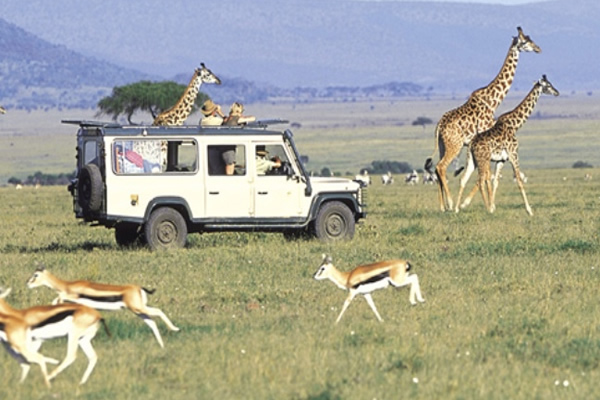- The presence of tourists acts as a deterrent to poachers, as visitors become the eyes and ears in protected areas, reporting and deterring illegal activities.
Tourism in Kenya has emerged as a powerful force, making significant contributions to the nation's economy, conservation efforts, and travellers' experiences.
Kenya's economy has greatly benefited from the tourism industry, serving as a substantial contributor to the nation's GDP.
The sector not only provides direct employment to hundreds of thousands of Kenyans but also supports numerous livelihoods indirectly. This has not only reduced unemployment rates but also improved the standard of living for many.
Foreign exchange earnings from tourism play a vital role in Kenya's income, helping stabilize the balance of payments and strengthen foreign currency reserves. Such stability is crucial in a global economy that can be unpredictable.
Moreover, tourism stimulates investment in infrastructure, hospitality, and various services, creating a ripple effect that benefits multiple industries.
The construction of hotels, improvement of roads, and expansion of airports generate job opportunities and foster the growth of related businesses.
One of the most compelling aspects of Kenya's tourism industry is its direct connection to conservation. The country is home to iconic wildlife species and breathtaking natural landscapes.
Tourism revenue has become a crucial funding source for conservation efforts, particularly within national parks and reserves.
Financial support generated by tourism enables the Kenyan government and non-governmental organizations to invest in wildlife protection, anti-poaching measures, and habitat preservation.
This not only safeguards Kenya's remarkable biodiversity but also contributes to global conservation endeavours. Tourists indirectly play a pivotal role in preserving Kenya's unique natural heritage by contributing to park fees and other conservation-related charges.
The presence of tourists acts as a deterrent to poachers, as visitors become the eyes and ears in protected areas, reporting and deterring illegal activities.
This illustrates that the impact of tourism extends beyond its financial contribution and plays a vital role in safeguarding the environment and its inhabitants.
Tourists are drawn to Kenya for its unique and unforgettable experiences. The country offers a wealth of attractions, from the renowned Maasai Mara National Reserve to the awe-inspiring landscapes of Mount Kenya.
Wildlife safaris, cultural encounters, and natural wonders combine to create a diverse and enriching experience.
Safari adventures lie at the heart of the Kenyan tourism experience. Witnessing the Big Five and countless other species in their natural habitat is a dream for many travellers.
The excitement of spotting these magnificent creatures in the wild creates memories that last a lifetime.
Cultural tourism allows tourists to connect with local communities, particularly the Maasai people. By learning about their traditions, rituals, and way of life, visitors engage in a mutually beneficial experience that can generate income for indigenous communities.
Moreover, Kenya's diverse landscapes, from arid deserts to lush forests, offer opportunities for hiking, birdwatching, and photography. These natural wonders provide tranquil experiences for travellers seeking serenity.
While the positive impact of tourism is evident, challenges such as overcrowding, inadequate infrastructure, and the need for improved waste management must be addressed.
The government and stakeholders in the tourism industry must work together to tackle these concerns, ensuring that tourists continue to have positive and memorable experiences.










